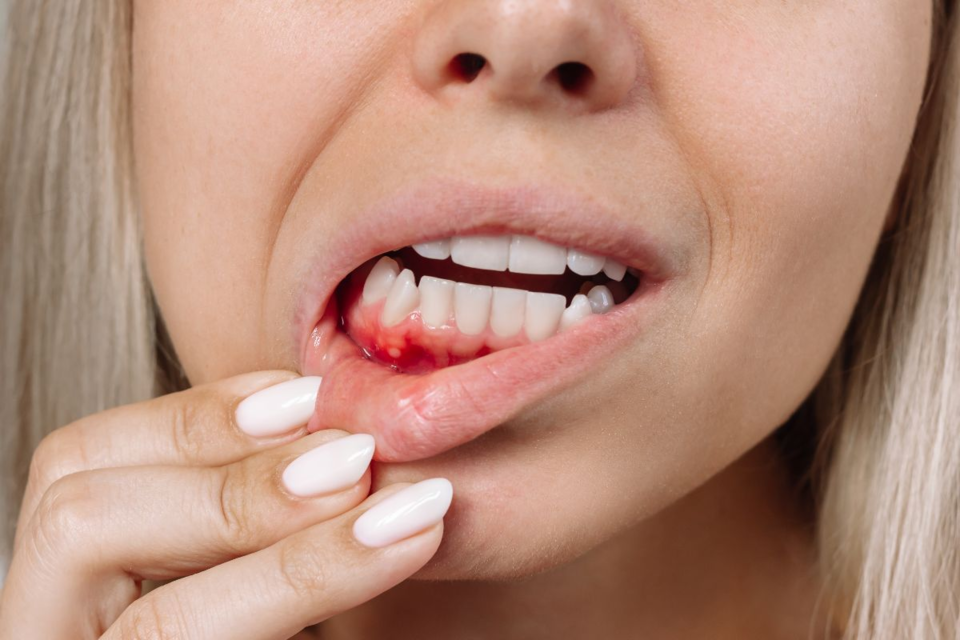
Bleeding gums can be alarming, but with the right care, this condition can be prevented and treated effectively. It often occurs due to poor oral hygiene, resulting in plaque buildup and gum irritation. However, it can also indicate underlying health problems. If you’ve noticed bleeding while brushing or flossing, don’t ignore it. Acting promptly and maintaining a consistent oral care routine is crucial for treating this issue. In this article, we will explore the top tips to prevent and treat bleeding gums, offering you a comprehensive guide to achieving healthier, more resilient gums. Treatment for bleeding gums in Dubai(علاجًا لنزيف اللثة في دبي) is essential for maintaining overall oral health and preventing further complications.
Proper Brushing Technique: A First Step Toward Healthy Gums
A fundamental yet often overlooked factor in preventing bleeding gums is the technique and frequency of brushing. Use a soft-bristled toothbrush and brush your teeth at a 45-degree angle to the gum line. Gentle strokes help remove plaque without irritating the gums. Avoid brushing too aggressively, as this can lead to gum damage, further exacerbating bleeding. Brushing twice a day, in the morning and before bedtime, is crucial for keeping your gums clean and free from harmful bacteria. If you're not already using fluoride toothpaste, consider switching to one that helps fight plaque buildup and strengthens gums.
Floss Regularly to Remove Hidden Plaque:
Flossing is just as important as brushing when it comes to preventing bleeding gums. Plaque can accumulate between your teeth and along the gumline, areas that a toothbrush cannot reach. Regular flossing helps remove this plaque, preventing it from hardening into tartar, which can irritate the gums. Gently glide the floss between your teeth, curving it around each tooth to clean the space effectively. Be careful not to snap the floss, as this could cause gum injury. Aim to floss at least once a day to help keep your gums in good shape.
Use Antibacterial Mouthwash for Added Protection:
Antibacterial mouthwash is an excellent addition to your oral hygiene routine, especially if you’re dealing with bleeding gums. This type of mouthwash helps reduce bacteria in the mouth, promoting healthier gums and fresher breath. Opt for a mouthwash that targets plaque and gingivitis, as it can help reduce inflammation and bleeding. After brushing and flossing, rinse with mouthwash for about 30 seconds, making sure to swish it around your entire mouth. This extra step can help prevent gum disease and keep your gums free from harmful bacteria.
Ensure a Nutrient-Rich Diet for Stronger Gums:
What you eat plays a significant role in the health of your gums. A well-balanced diet rich in vitamins and minerals is essential for preventing bleeding gums. Vitamin C, in particular, is known for its role in gum health, as it helps maintain healthy gum tissue. Foods like citrus fruits, strawberries, and bell peppers are excellent sources of vitamin C. Additionally, calcium is crucial for healthy teeth and gums, so incorporate dairy products, leafy greens, and nuts into your diet. A nutrient-dense diet not only supports overall oral health but can also accelerate the healing process if you're already dealing with bleeding gums.
Hydrate Well to Maintain Moisture in Your Gums:
Dry mouth can contribute to gum irritation and bleeding, making hydration a crucial part of gum care. Saliva helps neutralize acids in the mouth and wash away food particles and bacteria, so drinking plenty of water is vital for maintaining a moist environment for your gums. Aim to drink water throughout the day and consider chewing sugar-free gum if you’re prone to dry mouth. Staying hydrated helps promote better saliva flow, reducing the risk of gum infection and inflammation. Proper hydration is a simple yet effective way to support gum health.
Manage Stress to Prevent Gum Disease:
Believe it or not, stress can affect your oral health, including contributing to bleeding gums. Stress weakens your immune system, making your gums more vulnerable to infection. When you’re stressed, you may also engage in habits like teeth grinding or jaw clenching, which can further irritate the gums. To manage stress, consider incorporating relaxation techniques such as deep breathing, meditation, or regular physical activity into your routine. Reducing stress not only benefits your mental health but also contributes to the overall health of your gums and teeth.
Consistency Is Key: Regular Oral Care Is Essential for Treatment for Bleeding Gums
The key to preventing and treating bleeding gums is consistency. Make sure to maintain a proper oral hygiene routine every day, including brushing, flossing, and using mouthwash. By following the steps outlined above, you can significantly reduce the risk of gum disease and promote healing for existing gum issues. If the bleeding persists despite your efforts, it may indicate a more serious issue that requires attention. Remember, with dedication and care, treatment for bleeding gums can be both effective and long-lasting, ensuring that your gums stay healthy and strong.













